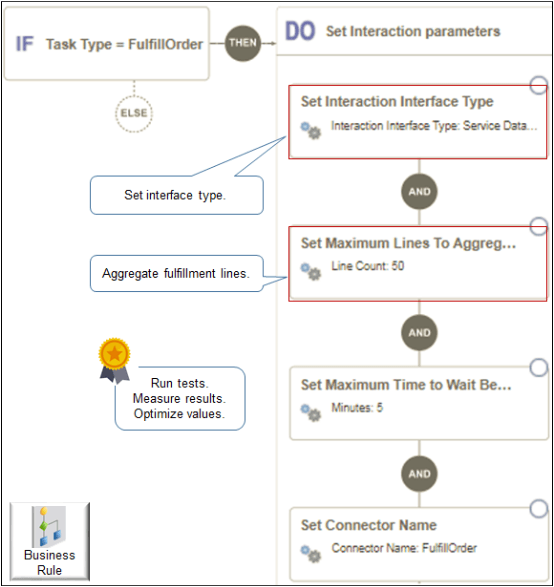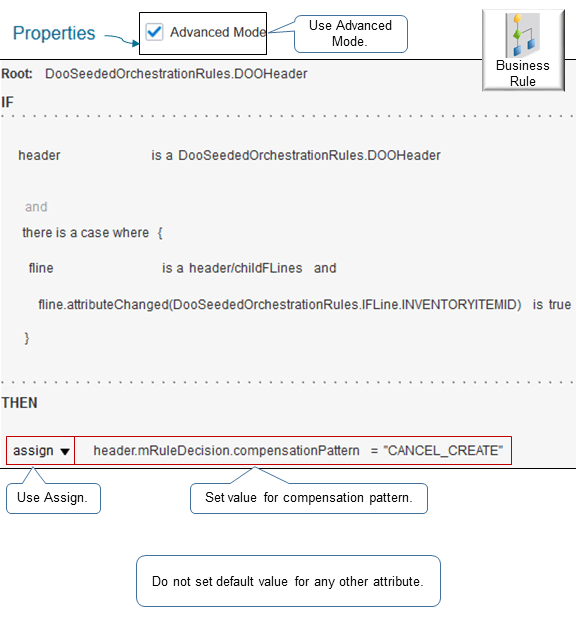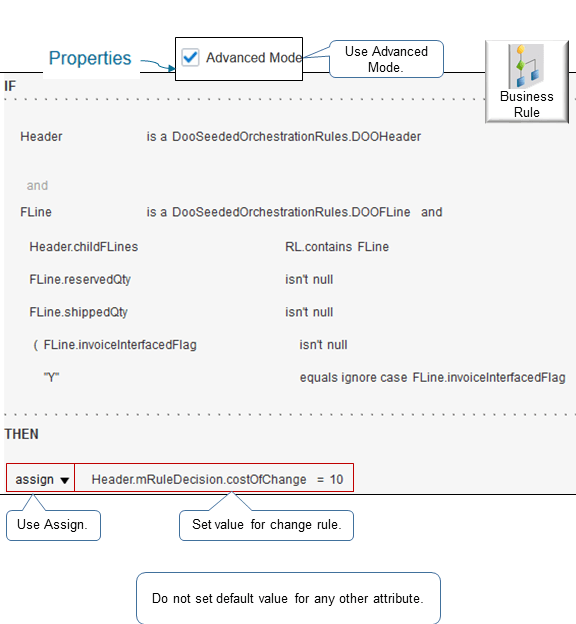Create Different Types of Business Rules
Apply guidelines to help you create different types of business rules.
Interface Routing Rules

Note
-
Use parameters, such as Maximum Lines to Aggregate, to aggregate the lines you send to your fulfillment system.
-
For details, see Manage Routing Rules.
-
Run several tests and measure the results. Optimize values for each parameter after each test.
-
Don't create a routing rule that depends on a pause task and that sets the connector. For example, if you use Visual Information Builder, don't create a rule that's similar to.
If Task Type is equal to pause, then set connector name to Fusion-Reservation.If you use Oracle Business Rules, don't create a rule that's similar to.
If header.Task Type is "Pause", then Set Connector Name ( "Fusion-Reservation" )
Compensation Patterns

Note
-
Use Advanced Mode.
-
Use the Assign action.
-
Assign a value for the compensation pattern. For example:
Assign header.mRuleDecision.compensationPattern = "CANCEL_CREATE" -
Don't use this rule to set the default value for any other attribute.
Cost of Change Rules

Note
-
Use Advanced Mode.
-
Use the Assign action.
-
Assign a numeric value, such as 10 to costOfChange. For example:
assign Header.mRuleDecision.costOfChange = 10 -
Don't use this rule to set the default value for any other attribute.